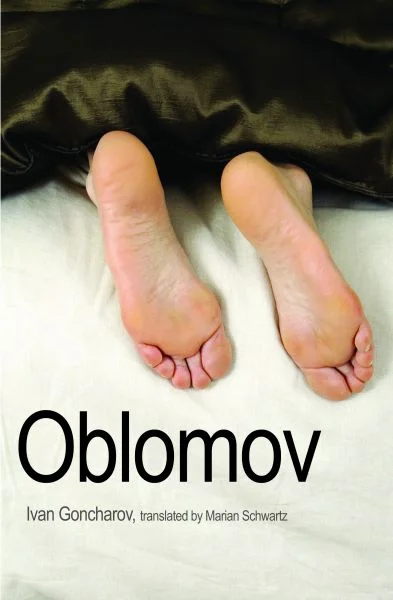In the chaos of early-1990s Russia, a paralyzed veteran’s wife and stepdaughter conceal the Soviet Union’s collapse from him in order to keep him—and his pension—alive, until it turns out the tough old man has other plans. An instant classic of post-Soviet Russian literature, Olga Slavnikova’s The Man Who Couldn’t Die tells the story of how two women try to prolong a life—and the means and meaning of their own lives—by creating a world that doesn’t change, a Soviet Union that never crumbled.
Read MoreThe Red Wheel is Solzhenitsyn’s magnum opus about the Russian Revolution. Solzhenitsyn tells this story in the form of a meticulously researched historical novel, supplemented by newspaper headlines of the day, fragments of street action, cinematic screenplay, and historical overview. The first two nodes— August 1914 and November 1916—focus on Russia’s crises and recovery, on revolutionary terrorism and its suppression, on the missed opportunity of Pyotr Stolypin’s reforms, and how the surge of patriotism in August 1914 soured as Russia bled in World War I. March 1917—the third node—tells the story of the Russian Revolution itself, during which not only does the Imperial government melt in the face of the mob, but the leaders of the opposition prove utterly incapable of controlling the course of events.
Read MoreIn the chaos of early-1990s Russia, a paralyzed veteran’s wife and stepdaughter conceal the Soviet Union’s collapse from him in order to keep him—and his pension—alive, until it turns out the tough old man has other plans. An instant classic of post-Soviet Russian literature, Olga Slavnikova’s The Man Who Couldn’t Die tells the story of how two women try to prolong a life—and the means and meaning of their own lives—by creating a world that doesn’t change, a Soviet Union that never crumbled.
Read MoreIn a Soviet elementary school, a bombastic teacher lectures his young students on traffic accidents and family separation, unwittingly stirring an emotional crisis. A lost wallet, an office fling, an upset stomach—the minutiae of life unveil the private tragedies at the heart of a school community.
A world away, an old herdsman entrances a young tank commander with the legend of Baron Ungern, the real-life White Russian officer who conquered Mongolia. A foggy epic unfolds, a tale of faith and revenge centering on a mysterious amulet, said to make the wearer invincible. From the dim of the classroom to the vast Mongolian steppe, Leonid Yuzefovich’s masterful novellas The Storm and Horsemen of the Sands drill straight to the core of human emotion. These Russian parables illuminate the fears, passions, and ambitions beneath the grandest acts and the tiniest gestures.
Read MoreTolstoy's romantic Anna, long-suffering Karenin, dashing Vronsky, and dozens of their family members, friends, and neighbors are among the most vivid characters in world literature. In the thought-provoking Introduction to this volume, Gary Saul Morson provides unusual insights into these characters, exploring what they reveal about Tolstoy's radical conclusions on romantic love, intellectual dishonesty, the nature of happiness, the course of true evil, and more.
Read MoreDay after day the Russian asylum-seekers sit across from the interpreter and Peter—the Swiss officers who guard the gates to paradise—and tell of the atrocities they’ve suffered, or that they’ve invented, or heard from someone else. These stories of escape, war, and violence intermingle with the interpreter’s own reading: a history of an ancient Persian war; letters sent to his son “Nebuchadnezzasaurus,” ruler of a distant, imaginary childhood empire; and the diaries of a Russian singer who lived through Russia’s wars and revolutions in the early part of the twentieth century, and eventually saw the Soviet Union’s dissolution.
Read MoreSet at the beginning of the nineteenth century, when idleness was still looked upon by Russia’s serf-owning rural gentry as a plausible and worthy goal, Ivan Goncharov’s Oblomov follows the travails of an unlikely hero, a young aristocrat incapable of making a decision. Indolent, inattentive, incurious, given to daydreaming and procrastination, Oblomov clearly predates the ideal of the industrious modern man, yet he is impossible not to admire through Goncharov’s masterful prose.
Read MoreWhite Guard, Mikhail Bulgakov's semi-autobiographical first novel, is the story of the Turbin family in Kiev in 1918. Alexei, Elena, and Nikolka Turbin have just lost their mother—their father had died years before—and find themselves plunged into the chaotic civil war that erupted in the Ukraine in the wake of the Russian Revolution. In the context of this family's personal loss and the social turmoil surrounding them, Bulgakov creates a brilliant picture of the existential crises brought about by the revolution and the loss of social, moral, and political certainties. He confronts the reader with the bewildering cruelty that ripped Russian life apart at the beginning of the last century as well as with the extraordinary ways in which the Turbins preserved their humanity.
Read MoreFirst published in Europe in the 1930s and 40s, these searing, evocative stories by the late Russian expatriate writer Nina Berberova (1901-1993) are portraits of the lives of Russian exiles in Paris on the eve of World War II. The protagonists range from housekeepers and waiters to shabby-genteel aristocrats and intellectuals––but all are united in a haunting displacement from their pasts, and all share a troubling uncertainty about the future.
Read More








